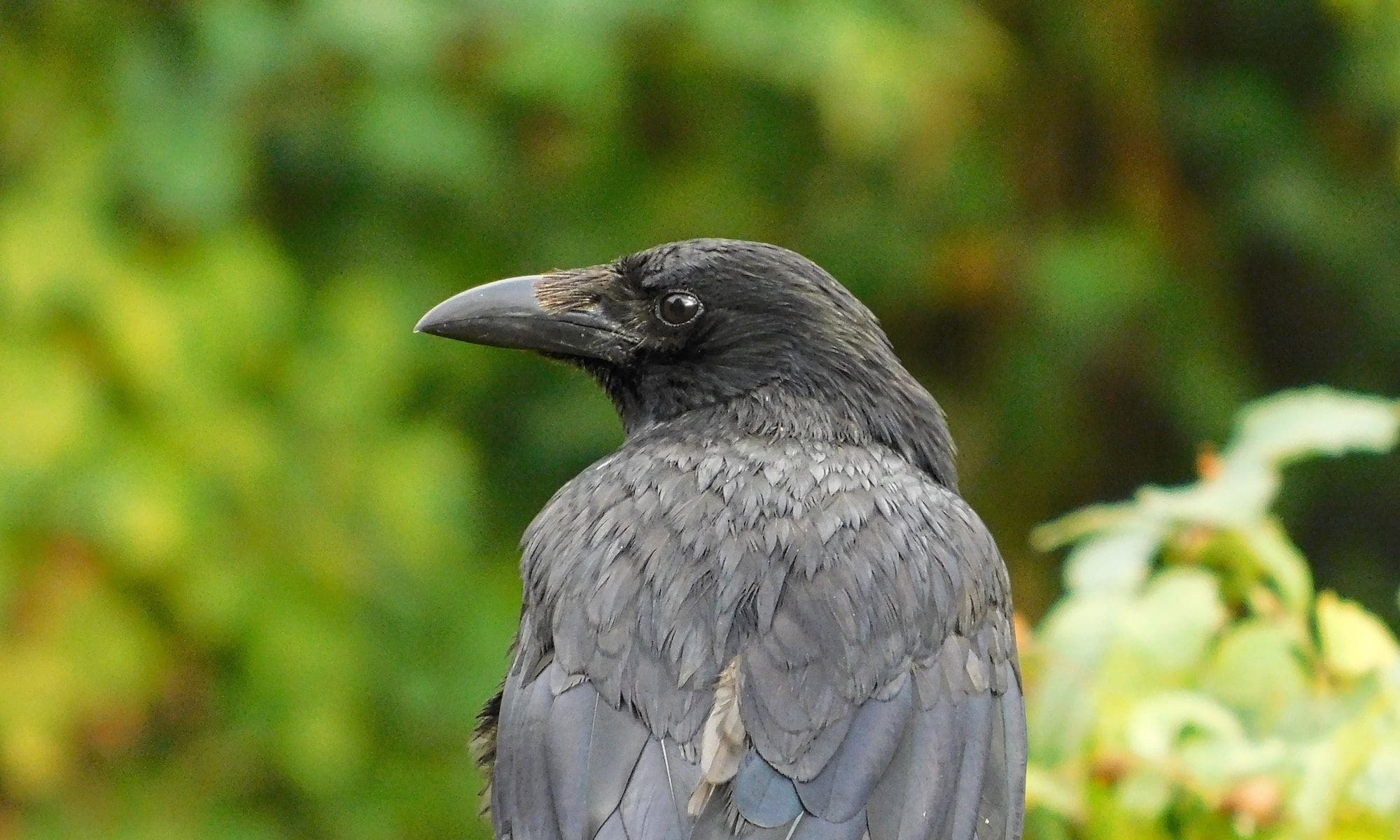The encounter I am writing about repeats itself often, but every time it is a completely new and unique event. We are getting a new rescue bird patient in and are treating the animal until he or she is ready for release back into the wild. Again and again we are astonished about how quickly we are able to establish a close relationship with the bird in our care. It is always about the same ingredients: Respect, patience, understanding and love. This brief story is dedicated to all of our rescue birds, but in particular to Teal’c, a very close rook friend, who came into our care after we found him soaked, cold and orphaned sitting in a puddle on a busy main road on the Isle of Wight.

Teal’c was very poorly when we took him in, and we actually didn’t believe that we would be able to save him. But Teal’c survived, grew up very quickly and made friends with all family members, but in particular with Kerstin and myself. His curiosity and urge to explore new unknown things was astonishing. Nothing would escape his notice. Everything had to be thoroughly checked and explored, which would eventually include ‘scientific’ tests like soaking and testing the impact of gravitational forces on objects of interest.
Communication Between Species
Teal’c was also very communicative, having used his language, but also beak, wings and feet to make sure his message has been understood correctly. It did always amaze us, when Teal’c was looking into our eyes and beyond, deep into our souls, as this was exactly how it felt like. He was ever so gentle, the way he communicated, showing the whole range of emotions a human could possibly show.
When he was young, it seemed that he had occasional nightmares, not being happy at all to be left alone. He had to be brought to bed, or his perch in the aviary. Gentle talking and stroking would calm him down. When he was sitting on our shoulder, then he would press his body, neck and head onto our body, until he was about to fall asleep. On the other hand, if he would not get the attention he wanted, then he would voice his disappointment and even get the odd tantrum, which also could include some gentle, well chosen, but surely noticeable physical enforcement of his desires.

There are hundreds of situations and unique encounters we have had with Teal’c, but also with a variety of other bird species, all providing unequivocal proof of the highly developed intelligence and emotional life of birds in general and corvids in particular.
Time To Say Good Bye
Teal’c grew into a beautiful young Rook, far to quickly the time was passing by. He once managed to escape rather by accident then by will, but came back, as it was not the right time to depart. Late in September we eventually released the juvenile rook friends Sam, O’Neill and Teal’c. They went off together joining a local mixed corvid bachelor group. Before the three birds where about to depart, we looked again into each others eyes, and we all realised, our hearts heavy and filled with sadness, it was now the right time to let go. We knew, that we will never forget each other and that our unique bond will persist, despite us being physically separated and living our own lives.

All three birds are occasionally visiting our garden, and their past temporarily home, whilst passing through on their way from the roosting trees to the fields. All three birds will start calling and interacting with us and old bird friends. But they will keep their distance, as it should be. Now they are free, back into the wild, where they belong to.








